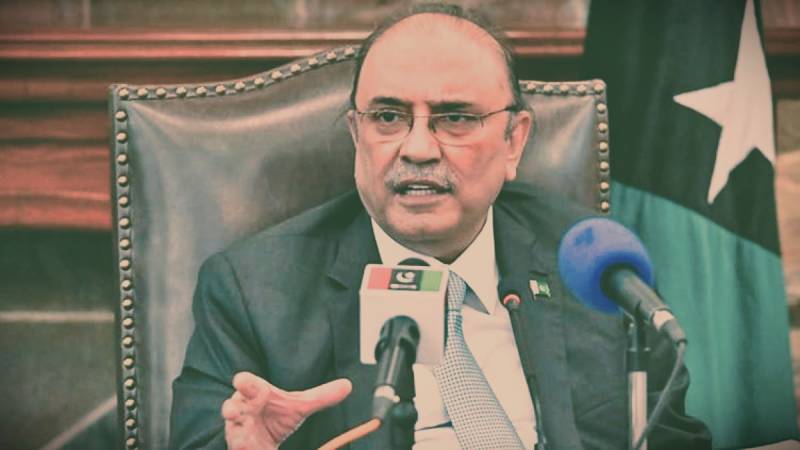
Former president and Pakistan Peoples Party Co-Chairman Asif Ali Zardari on Saturday reposed his trust in the Election Commission of Pakistan (ECP) and the Chief Election Commissioner to hold general elections.
He said this in a statement on Saturday. It followed a statement from his son and party Chairman Bilawal Bhutto Zardari, who had stressed that elections must be held within the time limit identified by the Constitution, which is 90 days.
In his statement on Saturday, Zardari echoed Bilawal's intrinsic demand that elections must be held as per the Constitution.
However, he went further and said that they had trusted the ECP and Chief Election Commissioner Sikandar Sultan Raja.
He further conceded that after the publication of the census, the ECP was legally bound to conduct fresh delimitations.
Further, Zardari demanded the caretaker government complete the newly set up Special Investment Facilitation Council (SIFC) at the earliest and make it functional so that the economic crises facing the country can be addressed.
"At this point, the country is experiencing an economic crisis for which we must stop worrying about politics and instead focus on the economy," he said.
We are because of the country, he reminded.
الیکشن کمیشن آئین کے مطابق الیکشن کروائے، سابق صدر آصف علی زرداری
— PPP (@MediaCellPPP) September 9, 2023
مردم شماری کے بعد الیکشن کمشن نئی حلقہ بندیاں کروانے کا پابند ہے، آصف علی زرداری
چیف الیکشن کمشنر اور تمام ممبران پر ہمیں پورا اعتماد ہے، آصف علی زرداری
نگران حکومت ایس آئی ایف سی کے منصوبوں کو جلد از جلد… pic.twitter.com/SsC9FG61c8
Zardari's comments come at a time when his PPP is involved in a war of words with its former coalition partner, the Pakistan Muslim League-Nawaz (PML-N), over economic decisions taken during their brief 16-month-long government, which precipitated the current economic crisis in the country including spiralling inflation and bottomless depreciation of the rupee.
The two parties have been united on the demand that elections should be held on time and that there should not be any extension in the constitutionally stipulated duration to hold them.
The assemblies had been dissolved in early August on the advice of the respective houses' leaders, the national assembly's prime minister and the provincial assemblies' chief ministers. The national assembly was dissolved on August 9, and the legislatures of Sindh and Balochistan were dissolved in the subsequent days.
Since the assemblies were dissolved just days before their constitutional term expired on August 12, elections for them would Constitutionally be held within 90 days.
However, before completing its tenure, the federal government, with consent from the respective provinces, had unanimously endorsed the results of the digital census held earlier in the year. This bound the ECP to hold fresh delimitation. Subsequently, the ECP issued a schedule for delimitation, which showed that elections within the 90-day constitutional period were impossible.

